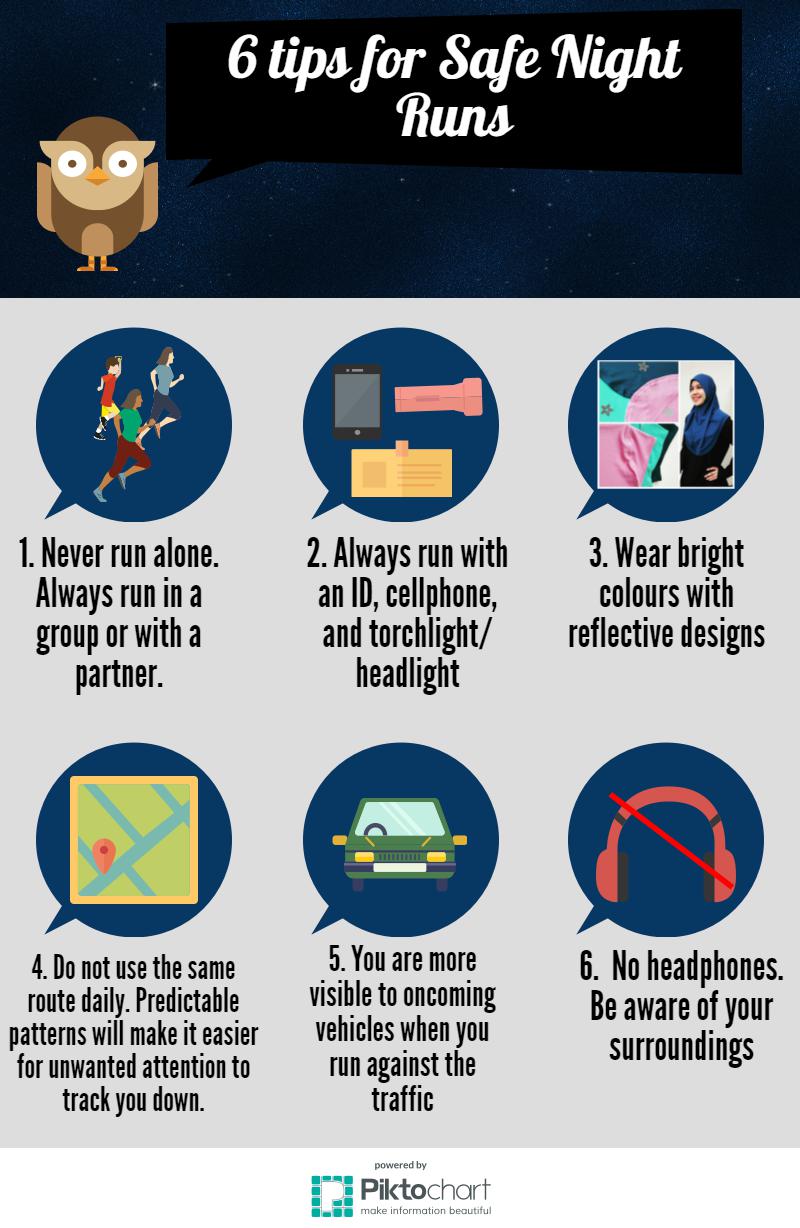Tips for Running a Safe and Healthy Marathon
5 (680) In stock

Getting to race day takes months of hard work and training—whether you are a first-time marathon runner or a seasoned runner. Use these tips before, during and after race day to enjoy the healthiest and safest run. Tips for getting ready for the marathon The days and final night before a half-marathon or full marathon is the peak time to prepare yourself physically and mentally. Eat carbohydrates. Choose complex carbohydrates like fruits, vegetables and whole grains. Do not overeat. Avoid heavy sauces, high-fat foods and excess fiber or protein. Do not try new energy sources. You do not know how your body will react, so avoid energy drinks or supplements. Drink plenty of water. Proper hydration means drinking plenty of water consistently—not a large amount at the last minute. Drink at least eight-ounce glasses daily (or half a gallon). Calm your nerves. Take time to decompress, relax and calm your mind using breathing and relaxation techniques. Lay out your race-day essentials. Organizing ahead of time will prevent rushing at the last minute. Prevent injuries. Take steps ahead of race day like daily stretching, wearing footwear that is made for long-distance running and keeping your toenails short. Go to bed early. Getting the recommended amount of sleep before your race will help you feel rested and more energized. Tips for the morning of the marathon You will feel anxious and excited on race day but do not have to be overwhelmed. Get up early. Give yourself enough time to get ready and avoid feeling rushed and stressed. Eat a light breakfast. Choose a meal high in carbohydrates and low in fat and fiber for the energy you need to fuel your run. Pack essentials. Bring hydration packs, snacks and a change of clothes for after the race. Wear sunscreen. Apply sweat-resistant, sports-specific sunscreen to protect your exposed skin. Wear comfortable clothing. Your clothes should not make you overly hot or cold during the race. Ask for support. Bringing a friend or family member to cheer you on will help you stay motivated. Stretch before the race. Avoiding injury in your major muscle groups is essential. Put yourself in the mindset of having fun! Celebrate your hard work and dedication, and enjoy race day. Tips for the day of the marathon Know your limits. Check-in with yourself throughout the race to stay at a sustainable pace. Do not push to go faster—you will risk burning out or getting injured. Fuel regularly. Take small sips of water and sports drinks throughout the race. Eat an energy gel or bar every 30-45 minutes. Listen to your body. Slow down or take a walking break if you feel pain. Stay hydrated. Drink fluids regularly even if you are not thirsty. Be mindful of the weather. Take extra precautions to stay hydrated and cool if the weather is hot or humid. Know the signs of heat exhaustion and heat stroke. Stop running and seek immediate medical attention if you have a headache or feel dizzy, nauseous and confused. Be aware of the terrain. Adjust your pace accordingly when going uphill or downhill. Tips for post-marathon recovery Congratulations on crossing the finish line! Even though the race is over, your body and mind must refuel and recharge. Drink, rest and eat. Post-marathon recovery requires hydration, plenty of sleep and a well-balanced meal. Choose gentle stretching over a massage. Light stretching will help release muscle tension. A massage can damage muscles after a marathon. Take a break from running. Avoid strenuous runs and strength training. Consider taking a week off and gradually returning to short, easy runs. Include light movement. Try low-impact walking, swimming or biking. Check-in with your doctor Before training for and running a marathon, you should schedule a routine check-up with your primary care physician (PCP) to ensure you are in good health for strenuous running, whether you are a beginner or more experienced. After the race, talk to your PCP if you are concerned you sustained an injury from the race, are experiencing pain or feel unwell. Call 866-MY-LI-DOC (866-695-4362) to find a Catholic Health physician near you. Register today for the Catholic Health Suffolk County Marathon on October 21 (5K) and October 22 (half and full marathon).

Consumers Energy - In honor of National Running Safety Month, here are five tips to run safe.

Love Running? Follow These Doctor Tips To Prevent Injuries While Covering A Long Distance

How To Stay Safe And Healthy During A MarathonOnya Magazine

Global Running Day 2023: Date, Significance, Health Benefits and Safety Tips - News18

Marathon running safety: how to train safely

Slow AF Run Club Book, Free Shipping $99+, MeadowsprimaryShops

Training for a Marathon? Tips to Keep You Going

10 Preparation Tips for Running a Marathon - Keck Medicine of USC

Sacramento Running Association Blog

Race day travel tips for the Healthy Driven Naperville Half Marathon & 5K, Sunday, Oct. 17

The Weekend Runner: 6 Tips for Safe Night Runs
Make Running Easier When You Follow these 12 Tips
72 Running Tips for Beginners + Great Reminders for All Runners!
Six Simple Strategies to Succeed as a Beginner Runner - ASICS Runkeeper
Running & Fitness Tips (@fitnessrunningtips) • Instagram photos
 Women High Waist Butt Lifter Body Shaper Tummy Control Thong Bodysuit G-String
Women High Waist Butt Lifter Body Shaper Tummy Control Thong Bodysuit G-String Pimfylm Pinsy Shapewear Bodysuit Lace Women's Lengire Lace Nightwear Underwear Set Large Color Tinte Suspender Lingerie Set Lingerie Green Medium
Pimfylm Pinsy Shapewear Bodysuit Lace Women's Lengire Lace Nightwear Underwear Set Large Color Tinte Suspender Lingerie Set Lingerie Green Medium Bubble Legging Tik Tok - Girl Boss Fashions & Accessories LLC
Bubble Legging Tik Tok - Girl Boss Fashions & Accessories LLC Kuwalla Buckle Chino Pant - Underground Clothing
Kuwalla Buckle Chino Pant - Underground Clothing The Holy Spirit - Spiritual Gifts: Amazing Power for Everyday People (Illuminated Bible Study Guides): 9781503227798: Rohrer, Susan: Books
The Holy Spirit - Spiritual Gifts: Amazing Power for Everyday People (Illuminated Bible Study Guides): 9781503227798: Rohrer, Susan: Books 83 ideas de PANTALÓN BLANCO INVIERNO
83 ideas de PANTALÓN BLANCO INVIERNO